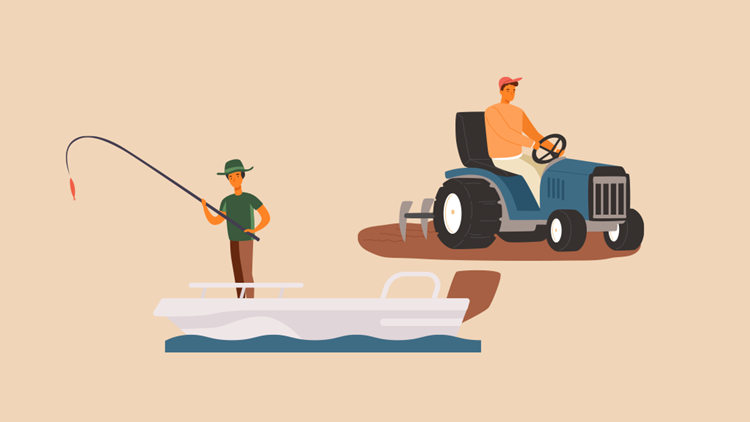
The Internal Revenue Service doesn’t want the March 1 tax deadline for farmers and fishermen to be “the one that got away.” Those taxpayers have to pay their entire tax bill from their respective businesses by that time if they didn’t make estimated tax payments.
The March 1 deadline payment date is a special rule, usually applied when a farming or fishing operation made up at least two-thirds of the gross income in either the current year or the previous year. This means filing by the regular April 18 deadline, but paying the tax due in full by March.
Estimated tax payers should make a payment by January 15 to escape a penalty.
Taxpayers can use their Online Account to set up payments through their bank account. They can also schedule payments ahead of time with IRS Direct Pay.
See Publication 505, Tax Withholding and Estimated Tax, for details on estimated tax payments.
Filing for the farmers
Those in the business of farming will report their income and expenses on Schedule F (Form 1040), Profit or Loss From Farming. If their net earnings from farming are $400 or more, they’ll also have to use Schedule SE (Form 1040), Self-Employment Tax, to calculate their self-employment tax due.
Two good resources are Publication 225, Farmer’s Tax Guide (check out Topic No. 554) and the Agricultural Tax Center webpage.
Filing for the fishermen
Schedule C (Form 1040), Profit and Loss from Business (Sole Proprietorship) is the main vehicle to report income and expenses from fishing. Like farmers, fishermen will calculate their self-employment tax using Schedule SE (Form 1040) if they have more than $400 in net earnings from fishing.
General information is available about rules applying to individuals – including commercial fishermen – who file Schedule C. Consult Publication 334, Tax Guide for Small Business.
For those whose business is a partnership or a corporation, Publication 541, Partnerships, or Publication 542, Corporations, can be useful.
Paying online is the fast way to pay
The Internal Revenue Service urges taxpayers, including farmers and fishermen, to pay their tax bill online if possible. Using one’s online account is fast, allowing taxpayers to make same-day payments from their checking or savings accounts. The online account also allows taxpayers to keep tabs on the other aspects of their tax life, from the Adjusted Gross Income calculated on their latest tax return, to tracking their advance payments received from the Child Tax Credit.
IRS Direct Pay is another option for taxpayers, scheduling a payment from their bank account to meet a tax deadline – no registration or login required. The Electronic Federal Tax Payment System, however, should be used by those taxpayers sending payment of business taxes. Enrollment is required to use EFTPS.
Find more information in Tax Topic 416, Farming and Fishing Income; Publication 5034, Need to Make a Tax Payment? (Available in English and Spanish), or visit IRS.gov/payments.
Source: IRS reminds those with farming, fishing businesses of March 1 tax deadline
